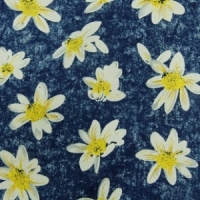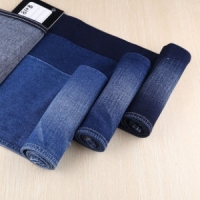The application of nitrogen in the dyeing process of denim sizing and dyeing machine is summarized. The main functions of nitrogen are to reserve pre reduced indigo and seal the liquid surface in the dyeing process, prolong the penetration time, reduce the volatilization of sodium hydrosulfite in the reducing mother liquor and dyeing liquor, improve the dye uptake, improve the productivity, reduce the environmental pollution and waste liquid discharge, etc.
Nitrogen is a kind of gas with the largest volume proportion in the atmosphere. It is a colorless, odorless and tasteless insoluble diatomic inert gas, accounting for 78% of the air volume. Therefore, it is also the most widely existing gas in nature. Pure nitrogen only needs to be separated from the air. Nowadays, with the continuous progress of science and technology, it is more and more widely used in production. The following is the latest application of nitrogen in denim sizing and dyeing machine.
1、 The function of nitrogen in mother liquor storage process is as follows
After using nitrogen, the proportion of dyes and chemicals put into the chemical process of pulp dyeing combined machine is close to the theoretical calculation value. The theoretical calculation value is: Indigo: sodium hydroxide: caustic soda = = 1:0.66:0.61; The actual ratio of chemical materials used by us is 1: (0.5 ~ 0.6): (0.7 ~ 0.8); However, the ratio of chemicals in common pulp dyeing machine without nitrogen is generally 1: (1.3 ~ 1.4): (1.0 ~ 1.2). In contrast, after using nitrogen, the usage of sodium hydrosulfite and caustic soda is greatly reduced. Using nitrogen to seal indigo mother liquor can ensure that the pre reduced mother liquor will not be oxidized by air, so that the mother liquor can be stored for a longer time, and the components in the mother liquor are more stable, which is conducive to cost saving, consumption reduction and emission reduction.
2、 The function of nitrogen in dyeing is as follows
1. To isolate air, reduce oxidation and save raw materials
Using nitrogen to seal the dyeing vat can isolate the contact between the dye solution and the air, and reduce the volatilization and consumption of sodium hydrosulfite in the actual dyeing process. According to the statistical data of our company, compared with the yarn without nitrogen, 10 kg ~ 15 kg sodium hydrosulfite and 20 kg ~ 30 kg caustic soda can be saved per 10000 meters of yarn.
2. Prolonging the soaking time and increasing the dye uptake
Using nitrogen to seal the upper part of the dyeing vat can prolong the impregnation time of the yarn in the dye solution, and after the impregnation rolling, there is also a penetration area, the top of which is connected with the dyeing vat and filled with nitrogen, so that the penetration time of the dye into the yarn is longer and the dye uptake rate of the dye solution is increased. Take our company's yarn count (10 + 705 + 806) and Toufen 4062 deep blue as an example, the dye uptake rate needs to be designed as 3.1% in the case of general pulp dyeing machine without using nitrogen, while in the case of using nitrogen sealed pulp dyeing machine, the dye uptake rate only needs 2.7% to reach the depth of 3.1% without using nitrogen. In this way, the utilization rate of dye can be increased by 10% ~ 15%.
3. Speed up the dye uptake rate and improve the labor production efficiency
Due to the sealing of nitrogen, the contact time between the dye and the yarn is increased. The reduced leucophore of indigo dye can fully contact and penetrate the yarn. Compared with the unused nitrogen, the time required to achieve the same dye uptake, that is, the depth, is correspondingly reduced. The dyeing speed of the pulp dyeing machine without nitrogen is generally (22 ~ 25) m / min, which can be increased by (3 ~ 8) m / min after use, and the value created by labor per unit time will be increased. Take our company's yarn (10 + 7 + 705) and the first 425 t-deep blue as an example. When nitrogen is not used, the speed is 23m / min, and after use, the speed can be increased to 28m / min.
4. Improve the washing fastness, increase the brightness of the color:
Using nitrogen sealed dyeing, the dye can fully penetrate into the yarn, so that the combination of dye and yarn is closer. From the cross section of dyed yarn, the white core of yarn dyed with nitrogen auxiliary is relatively small, and the white core of yarn dyed without nitrogen auxiliary is obvious, the fastness of dye and yarn combination is not enough, and the floating color is more, After washing, it will soon become lighter, and the same depth of cloth dyed with nitrogen will be about 15% deeper after washing. From the perspective of color, the color of denim dyed with nitrogen is pure and bright after washing, while denim dyed without nitrogen has the feeling of dull and less luster after washing.
3、 Effect of nitrogen on dyeing environment protection
Because the use of nitrogen sealing, the yarn through the dye vat does not need a full VAT, just need to reach a reasonable liquid level. When the yarn with liquid runs on the roller in the sealed VAT above the dye liquor, it is equivalent to running in the full vat dye liquor. In this way, the amount of dye liquor can be greatly reduced. After our company uses nitrogen sealing dyeing, the total volume of dye liquor is about 4000L, The total volume of the traditional pulp dyeing machine (10 channels) is about 11000 L. The volume of dyeing solution of the pulp dyeing machine sealed with nitrogen can be only 2 / 5 of that of the traditional dyeing solution, and the liquid level can be well balanced in actual operation. The dye solution seldom rises or falls before and after dyeing. Moreover, due to the small amount of dye, the color conversion is more convenient and fast, which reduces the storage barrel required for a large number of dye solutions, and greatly reduces the discharge and treatment of waste dye solution, Conducive to environmental protection and energy saving, but also reduce waste!










